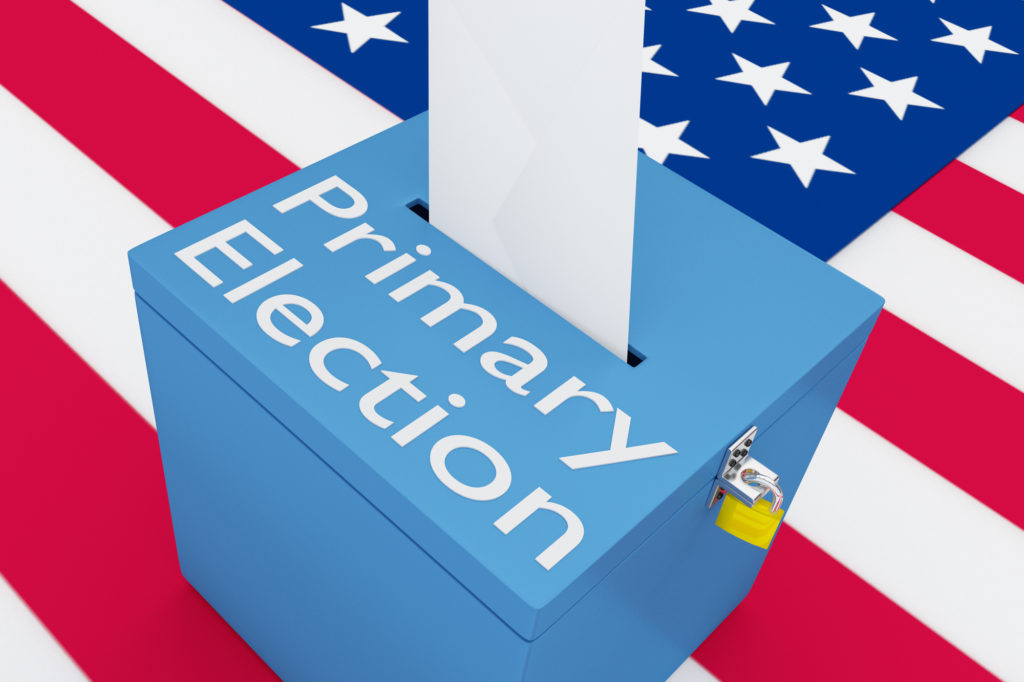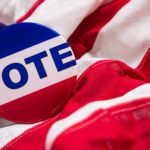
American politics is full of jokes, sneers, and smear campaigns from every party–some of which are almost too ridiculous to believe.
Many even think the political games have become worse and more vicious over the years and they have good reason to think that.
In fact, some of the earliest campaign buttons are arguably more creative and memorable than the more recent ones. This is partly due to many recent politicians trying to copy advertising or social trends, often to great facepalm-inducing results.
Take a look at our list of presidential campaign buttons below and see just how crazy it’s been from the very start.
Memorable Presidential Campaign Buttons
When we think of the election pins of the past we’re likely to imagine something around the 1950s or 1960s. It surprises many to learn that these buttons have actually been around a lot longer.
Right back to the beginning of America itself.
Long Live the President!
England sucks. America rules.
This is a moderate generalization of the attitude that led to the American Revolution and changed history forever.
More specifically, Americans were sick of having to pay taxes and live under the rule of a King. “Long live the king” was a common proclamation to say about your ruler if you were a loyal follower (or pretending to be one to save yourself being executed).
This did not sit well if you were a hard-working American who built his wealth from the ground up. Handing over a portion of your wealth to some spoiled rich guy in another country seemed like a stupid and ridiculous thing to do.
So the Americans rebelled and managed to free themselves from English rule beginning a golden age of democracy.
When it came to electing the new and first president of the country, George Washington was the perfect candidate.
So as a sign of newly formed patriotism and as a blatant middle finger to the pathetic monarch of England, buttons across the campaign read:
“Long live the president!”
Any country that starts with a good sense of humor and a dash of snarkiness was always destined for big things.
Total Eclipse
Another example of the creativity and humor that went into old politics would be the McKinley vs. Bryan election in 1896.
By this point the industrial revolution was in full swing and manufacturing large quantities of buttons cheaply was possible.
While many campaigners were trying to think of how to outshine one another, an idea came out to do the opposite. What’s better than outshining someone? Blocking their light completely.
You see, that year there had been a lunar eclipse where the moon blocked out the sun. It seemed like a fitting metaphor so both campaign buttons showed their candidates as the moon blocking out his rival with the message:
“Total eclipse Nov. 6”
Arguably the effectiveness was lost since both candidates created the same button. But a counter button was made positioning the launch of the Democratic National Convention as the place to see an “imaginary eclipse” take place.
Either way, it continued to grow the precedent that campaign buttons could be both fun and creative.
I Like Ike
As ridiculous as this sounds, World War One inspired much of today’s celebrity culture, public relations, and advertising industries. The fitting example of this comes from the creator himself, Edward Bernays, who realized the word ‘propaganda’ wouldn’t be well received. So he invented the term ‘public relations’ to mask his intention.
He was inspired by the parades, patriotism, and nationalism that arose after the end of the first world war. Propaganda was used to motivate people during the war, so surely it could be used in peacetime too?
Many campaigns after this such as the presidential campaign of 1951 for Dwight “Ike” Eisenhower saw the consequences of this. Ike was treated like a product, he was given his own slogan and branding complete with his own campaign pins saying “I Like Ike”.
He even had his own commercial which repeated “you like Ike, I like Ike, everybody likes Ike (for president)” until you could literally feel it drilling into your memory.
Was this campaign button witty? No. Was it memorable? Undeniably so.
McCarthy for Fuhrer
By 1968, the creativity of presidential campaigns was continuing to get darker and more vicious. As you may have guessed, this campaign button didn’t even try to be subtle.
With World War Two still fresh in the minds of people around the country, McCarthy’s haters saw an opportunity to attack.
They created attack ads and numerous campaigns to belittle and undermine McCarthy’s character. One of their most memorable election pins read “McCarthy for Fuhrer” and was worn by his opposition everywhere.
It was a sign of things to come, not just politically but culturally too. If you could allude that a presidential candidate was like Hitler, then nothing was off the table.
But it is nice to know that comparing people to Hitler has been going on long before the YouTube comments section.
McGovern Can’t Lick Our Dick
Are you noticing a trend yet? What started as innocent eclipse jokes turned into pretty much the lowest bar of politics imaginable. Dick jokes.
By 1972, America had decided that politics was just a playground of petty remarks, lies, and stupid jokes. (Good thing that didn’t have any effect on our future political climate.)
Taking a page from Dwight “Ike” Eisenhower’s page, Richard Nixon’s supporters took on the “Dick” nickname as an easy jumping off point. From there, the repressed homosexuality came out as campaign pins with the famous saying:
“McGovern Can’t Lick Our Dick”
But don’t worry, where there is one dick joke, you’ll find thousands more. Other lines that came from this campaign include:
“We Like Our Dick”, “My Pick is Dick”, and the totally-not-gay-because-it’s-about-a-president “I like Dick.”
Of course, positive reinforcement is a thing, so the fact the Nixon went on to win the election may have something to do with why people continued to do this as the years went on.
Bring Out Your Buttons
Is it a bad thing that the most memorable presidential campaign buttons were mostly sneering attacks? Possibly.
But should that stop you from making your own and having fun? Definitely not! Freedom of speech allows us to hold and express views without fee of persecution. And there’s nothing more liberating than expressing yourself in your own words. If you want to learn how to use buttons in your campaign you can view here for more.
Otherwise, feel free to check out our other articles on people, drugs, and everything in between.

